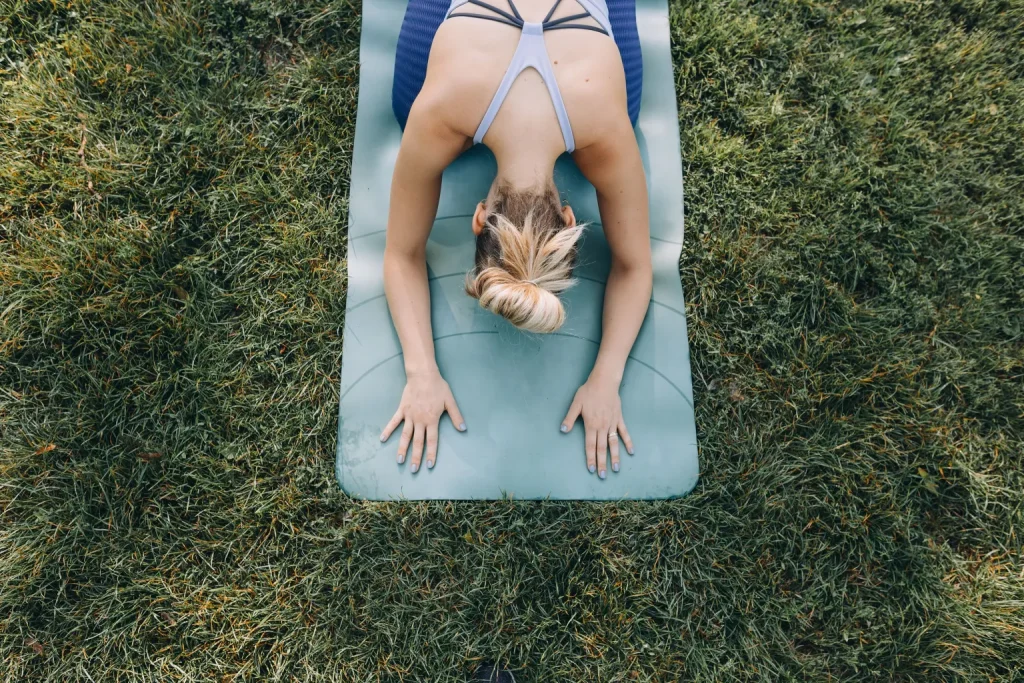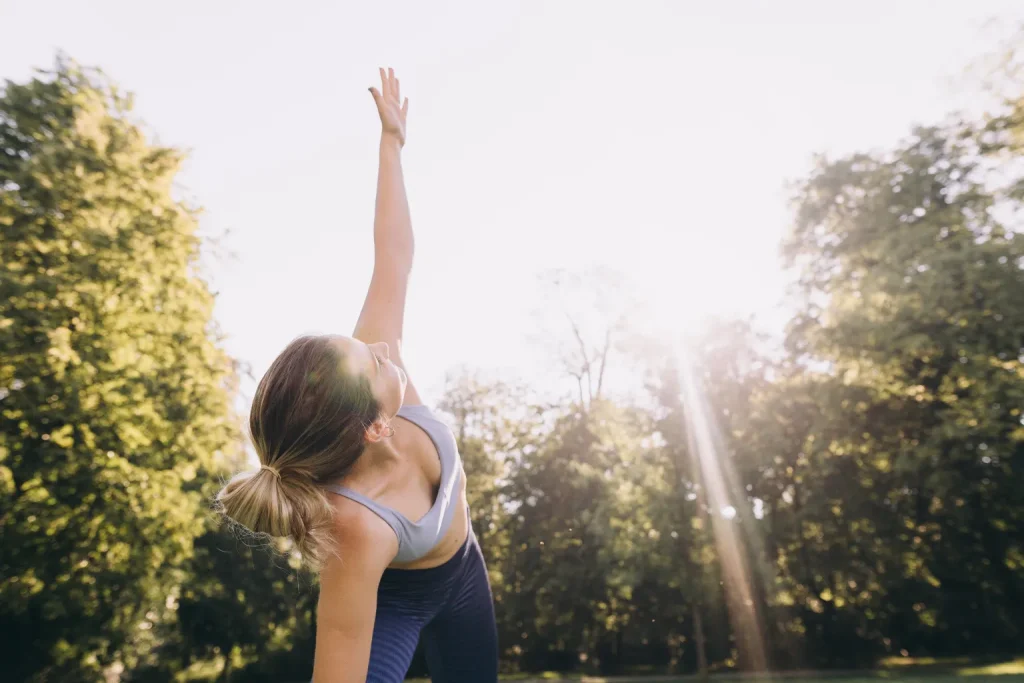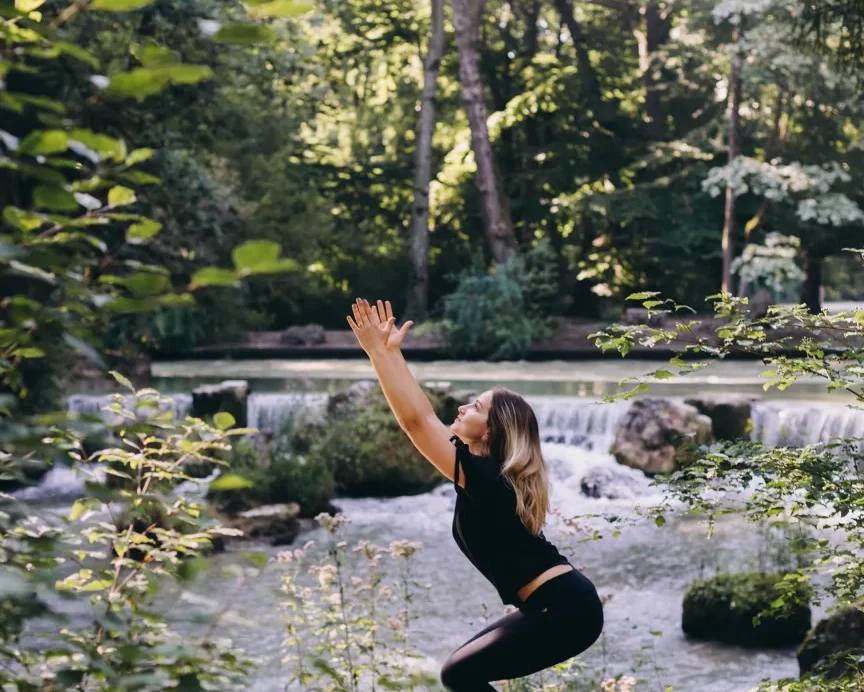Despite all the Yoga content I’ve written over the years, it dawned on me that I’ve never actually written a piece which is specifically Yoga advice for beginners. So I’m rectifying that today. Because my aim with these posts is to try and get people to open their mind to Yoga and consider giving it a go. We were all beginners once.
Before we start, I just want to make it clear that although I’ve been practicing Yoga for around a decade and have learned a great deal about the practice, I am not a Yoga teacher or qualified to teach Yoga in any way.
This post is simply based on my own experience with some general advice that I think those who want to start Yoga could benefit from. If you have a medical condition, talk to your doctor before you try a new exercise like Yoga.
Great, now that’s out of the way, let’s talk about Yoga. One of my favourite things in the world.
Yoga is an integral part of my life now. I’ve been practicing since around 2013, when I was in the midst of of myanxiety disorder and was desperate to find something that would help.
I discovered Yoga that way and whilst it didn’t necessarily help at first, I was very intrigued by it. I kept at it. I experimented with teachers (until I found Adriene Mischler on YouTube and never went back) and that was it. I was hooked. A Yogi.

Given it’s origins, Yoga can be a very spiritual practice for many people. But in this post, we’re looking at purely the physical practice of Yoga, as I’m certainly not the person to give advice about the spiritual practice.
Yoga is an ancient practice, who’s origins can be traced back 5,000 years to Northern India and was considered an explicitly religious aspect of Hinduism.
Although Yoga religious in and of itself, it’s heavily connected to religion. I think it’s sensible and respectful to at least have a basic understanding of the origins and the cultural and spiritual side of Yoga – that doesn’t mean you have to be religious or spiritual yourself.
As with most things, we came along and Westernized the practice. Which I don’t inherently think is a bad thing because fundamentally, Yoga is all about connection. And if Yoga can help us as a society, in this fast paced world, feel more grounded and connected – to ourselves and others – then that can only be a good thing.
But back to the point. The physical aspects of Yoga have a wide range of benefits for the human mind and body. Sadly, there’s still a lot of misconceptions about Yoga, which I do believe puts people off rolling out their mat and giving it a go.
If you’re interested in Yoga and are a COMPLETE beginner, I want to share with you some of my top yoga advice for beginners that I think is beneficial for your practice to help you get started.
So here is some Yoga advice for beginners to help you get started:

Find a teacher you connect with
I initially started my Yoga practice with some DVD’s from a teacher called Tara Lee. I got these at random from Amazon, with no idea what I was buying really and I never really enjoyed the practice that much and I think it was because of the teacher.
She never gave any modifications and her DVD’s were clearly aimed at people who knew what they were doing – certainly not me at the time! So I was a bit put off by it from those DVD’s alone. So it’s important to find a teacher that you connect with, whether it’s through a physical class, a YouTube channel or a DVD. You could even try yoga with puppies in London if you wanted a fun twist!
Forget what other people look like
I wrote a post recently all about my Yoga confessions, where I talk a bit about how Yoga is so often perceived as thin, white women in Bali with “perfect” bodies. Well, you need to drop that impact and interpretation of Yoga immediately because it’s rubbish.
Yoga is for everyone; size, colour, race, age, gender, sexual preference. Your mat is supposed to be your safe space, your haven. So I hate the thought of people not giving it a go and depriving themselves of the benefits because they’re deemed to not be “right” for it. Modifications are available for everyone to.
Modifications aren’t anything to be embarrassed about
Which brings me nicely onto this point about… modifications! You will not catch me sticking my legs behind my head, doing a headstand or turning myself into a pretzel. Because I can’t. My hips are too tight, my shoulders are too tight and my core isn’t strong enough. And that’s okay.
Know straight away that modifications are sensible, available and there for you to use. Your Yoga practice or poses don’t have to look like anyone else’s and Yoga is a personal practice all about what feels right and feels good for you.
Remember that you don’t need anything fancy
Apart from a Yoga mat which is helpful to protect your knees, you don’t really need anything else fancy in order to complete a well-rounded and beneficial Yoga practice. Things like blocks and straps can definitely be useful but they’re not absolutely necessary.
Back to the point about modifications, you can also modify when it comes to using props and things to help you make the poses feel more comfortable. Instead of a block, use a book! Sit up on a cushion from your bed or a rolled up blanket instead of a fancy Yoga blanket.
If something hurts, don’t do it
I was going to say this is a general rule of thumb for life but we choose to get tattoos all the time and they hurt, so perhaps not. But when it comes to movement, exercise and particularly Yoga, this is definitely the case.
You should always be mindful of your joints in particular in Yoga and the more you practice, the more strength you will build up around your joints which is amazing. But when you’re first starting, just be extra careful and if something hurts, step back from it.
Take some time to learn the names of the poses
And my last piece of Yoga advice for beginners would be that you don’t have to learn theSanskrit name for all the poses, unless you’re a teacher, I’d think that was close to impossible.
